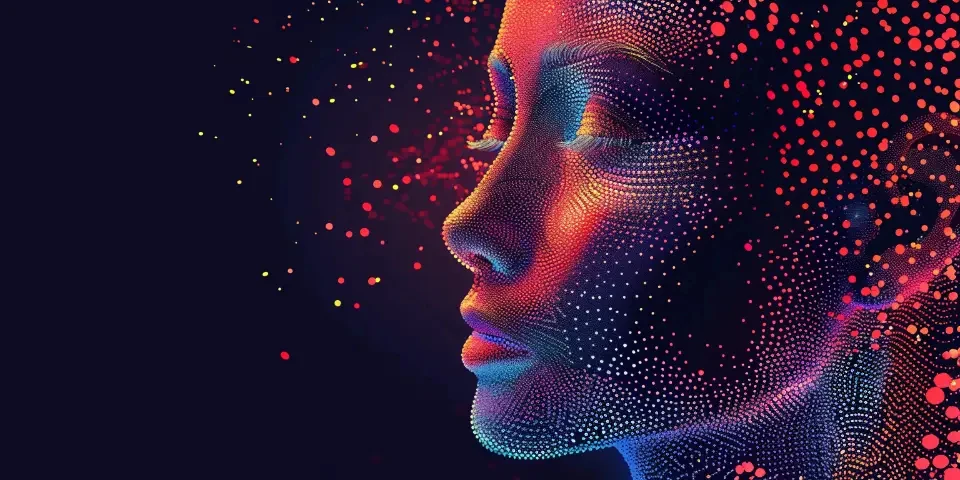Unlocking the Future of Photography AI-Powered Professional Photos that Amaze
The world of photography has seen remarkable advancements in recent years, thanks to the rapid progress in artificial intelligence (AI) technology. From enhancing image quality to automating editing processes, AI-powered photography solutions have revolutionized the way we capture and experience images. In this article, we will explore the various aspects of AI-powered photography and its incredible potential to amaze both professional photographers and enthusiasts alike.
1. Image Quality Enhancement
One of the most impressive applications of AI in photography is its ability to enhance image quality. Traditional cameras possess limitations due to factors like lighting, exposure, and lens quality. However, AI algorithms can analyze and adjust these parameters in real-time, resulting in sharper, vibrant, and more visually appealing images.

AI-powered photo editing software, such as Adobe Lightroom or Skylum Luminar AI, utilizes intelligent algorithms to automatically adjust exposure, color balance, and noise reduction with tremendous precision. These tools save photographers significant time while ensuring optimal image quality.
2. Intelligent Auto-Adjustments
AI algorithms have the capability to analyze the composition of a photo and intelligently make adjustments to improve its overall appearance. Through scene recognition and object detection, AI-powered cameras and software can automatically adjust settings, such as focus, aperture, and shutter speed, to capture the perfect shot in any scenario.
Additionally, AI-powered photo editing tools can intelligently detect and remove unwanted objects or blemishes from images, saving photographers the painstaking task of manual retouching. These features not only enhance workflow efficiency but also play a crucial role in creating visually stunning photographs.
3. Real-Time Style Transfer
With AI, photographers can instantly apply a variety of artistic styles to their images in real-time. Utilizing deep learning algorithms, tools like Prisma or DeepArt enable photographers to transform their photographs into breathtaking paintings or emulate the signature styles of famous artists.
This ability to apply unique artistic filters expands creative possibilities and allows photographers to achieve distinct visual storytelling. Whether it's replicating the brush strokes of Van Gogh or creating a surreal, dream-like atmosphere, AI-powered style transfer offers photographers an incredible range of artistic expression.
4. Automated Tagging and Sorting
Sorting through a massive collection of photographs can be a tedious task. AI technology offers a solution by automatically analyzing and tagging images based on their content. By understanding the objects, locations, and people within an image, AI-powered software like Google Photos or Adobe Sensei can group and categorize photos, making it easier for photographers to search and locate specific images from their vast libraries.
5. Intelligent Photo Editing Assistance
In addition to automatic adjustments, AI-powered photo editing software can provide intelligent assistance to photographers during the editing process. By analyzing patterns in editing history and user preferences, the software can suggest edits, recommend enhancements, or even apply pre-set filters that align with the photographer's unique style.
Tools like Skylum Luminar AI use AI algorithms to analyze images and automatically suggest edits, dramatically reducing the time required for tedious manual adjustments. This assistance enables photographers to focus more on the creative aspects of editing, elevating their overall productivity and output quality.
6. Facial Recognition and Portrait Enhancement
AI-powered facial recognition technology has significantly transformed portrait photography. Through advanced algorithms, cameras and editing software can identify and analyze facial features, automatically applying enhancements to ensure subjects look their best.
Facial retouching tools powered by AI, such as PortraitPro or Perfectly Clear, can smooth skin, remove blemishes, and enhance facial details with incredible accuracy and efficiency. This technology not only saves time but also helps photographers achieve consistent, professional-looking portraits.
7. Enhanced Low-Light Photography
Low-light photography has long been a challenge due to issues like noise and lack of detail. However, AI-powered cameras and software are now equipped with advanced noise reduction algorithms and image enhancement techniques to overcome these limitations.
Tools like Topaz DeNoise AI or DxO PhotoLab utilize AI algorithms to reduce noise levels while preserving important details, resulting in impressive low-light images with superior clarity. This breakthrough allows photographers to capture stunning shots even in challenging lighting conditions.
8. Content Generation and Image Synthesis
AI technology is not limited to merely enhancing photographs but also has the capability to generate entirely new visual content. Using techniques such as Generative Adversarial Networks (GANs), AI algorithms can generate realistic images from scratch based on given parameters or combine elements from multiple images to create unique compositions.
Platforms like ArtBreeder or NVIDIA GANPaint Studio leverage AI-powered image synthesis capabilities, enabling photographers to explore new artistic possibilities and create visuals that push the boundaries of traditional photography.
Frequently Asked Questions:
1. Can AI completely replace professional photographers?
No, AI technology cannot entirely replace professional photographers. While AI can automate certain processes and enhance image quality, the creative vision and expertise of photographers remain invaluable. AI serves as a powerful tool that complements and assists photographers in their craft.
2. Are AI-powered photo editing tools difficult to use?
Not at all. AI-powered photo editing tools are designed to simplify the editing process for photographers at all skill levels. They typically offer intuitive interfaces and can automate various editing tasks, making them accessible to beginners while providing advanced features for professionals.
3. Can AI-powered photography solutions run on smartphones?
Absolutely. Many AI-powered photography solutions, including cameras, editing software, and apps, are specifically developed for smartphones. These AI algorithms are optimized to run efficiently on mobile devices, enabling users to harness the power of AI on-the-go.
References:
1. Adobe Sensei: https://www.adobe.com/sensei.html
2. Skylum Luminar AI: https://skylum.com/luminar-ai
3. Prisma: https://prisma-ai.com/
Explore your companion in WeMate